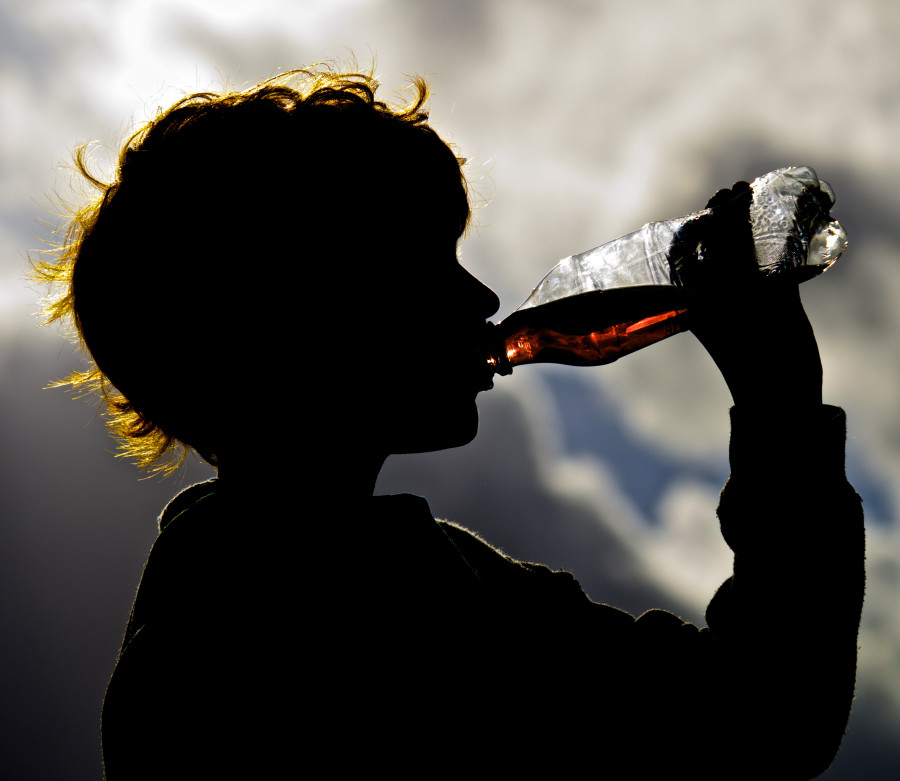
Published: Sept 14, 2019 2:42 p.m. ET
Soda sales have declined as consumers reach more frequently for bottled water and seltzers
Here’s some less-than refreshing news about soda: even sugar-free versions were associated with a higher risk of death in a study of 452,000 people in 10 countries.
The study, published Tuesday by the Journal of the American Medical Association, found that people who drank two or more glasses of soft drinks per day were more likely to die from all types of ailments, compared with people who drank less than one glass per month.
“Results of this study appear to support ongoing public-health measures to reduce the consumption of soft drinks,” the researchers concluded.
The study found differences in the health effects of drinks that contain sugar versus those that are artificially sweetened. Sugar-sweetened soft drinks were associated with digestive-disease deaths (a broad category that includes diseases of the liver, appendix, pancreas, intestines and other illnesses), while higher consumption of sugar-free versions was associated with deaths from circulatory diseases, including ischemic heart disease, also known as coronary artery disease.
Researchers found no association between soft-drink consumption and cancer deaths or deaths from Alzheimer’s disease. Consuming higher amounts of both sugary and sugar-free soft drinks was associated with the risk of death from Parkinson’s disease. Previous studies have linked the high level of consumption of sugar-sweetened and artificially sweetened soft drinks to elevated risks of obesity, Type 2 diabetes, and cardiovascular disease, the authors noted.
Some 50 researchers, lead by Neil Murphy, Ph.D., of the International Agency for Research on Cancer, co-authored the study. It used data collected on questionnaires and in interviews between 1992 and 2000. Study participants were in the United Kingdom, Germany, France, Italy, the Netherlands, Denmark, Norway, Spain, and Sweden.
Coca-Cola KO, -0.02% and PepsiCo PEP, -0.15% did not respond to requests for comment. Soda sales have declined in recent years as health-conscious consumers have reached more frequently for bottled water and seltzers.
The JAMA study builds on previous research about the links between consuming soft drinks and poor health outcomes. Drinking two or more sugary beverages a day was associated with a greater risk of death from cardiovascular disease, especially among women, a report published earlier this year in the American Heart Association’s journal, Circulation, found.
Drinking more caffeinated soda has also been linked to triggering migraine headaches, and consuming 32 ounces of energy drinks in under an hour spiked the risk of electrical disturbances in the heart for as long as four hours after the drinks were consumed, according to a small study of 34 healthy volunteers between the ages of 18 and 40 published in the Journal of the American Heart Association.
Sweetened drinks are the biggest source of added sugar in the average American’s diet, according to the American Heart Association, with a typical 12-ounce can of soda containing 35 to 37.5 grams of sugar and between 140 and 150 calories on average. A standard-size Hershey HSY, +0.24% milk chocolate bar has 24 grams of sugar and 220 calories.
A spokesman for the American Beverage Association, a trade group representing soft-drink makers, defended soft drinks. “Soft drinks are safe to consume as part of a balanced diet and the authors of this study acknowledge their research does not indicate otherwise,” said ABA spokesman William Dermody. “America’s beverage companies are committed to innovation and working to reduce the sugar people get from beverages by introducing more options than ever before with less sugar and zero sugar. Today, more than half of all beverages purchased contain no sugar. No one should overconsume sugar, and we stand by the safety and quality of our products.”
To read the rest of this article go to: